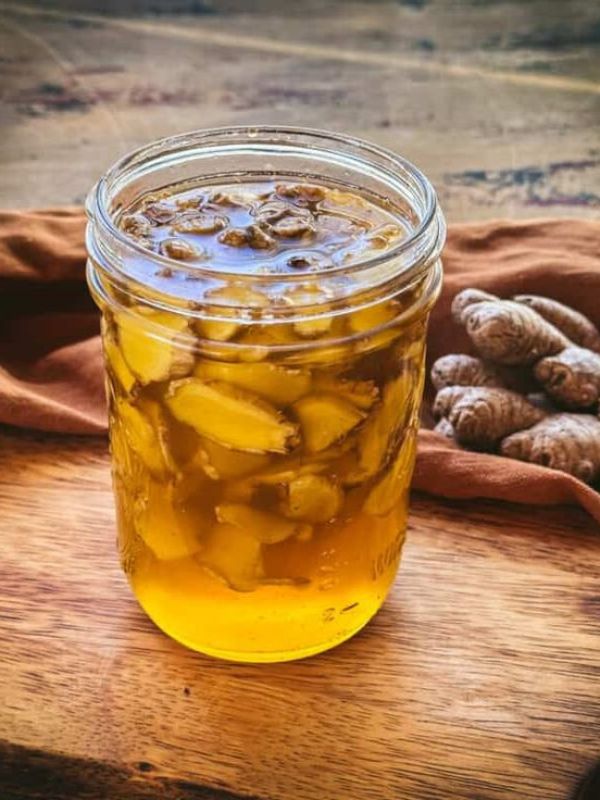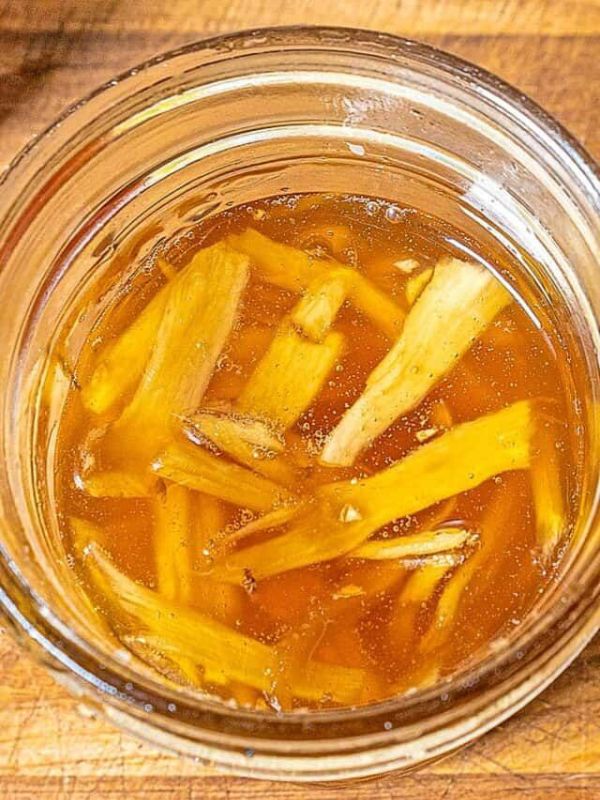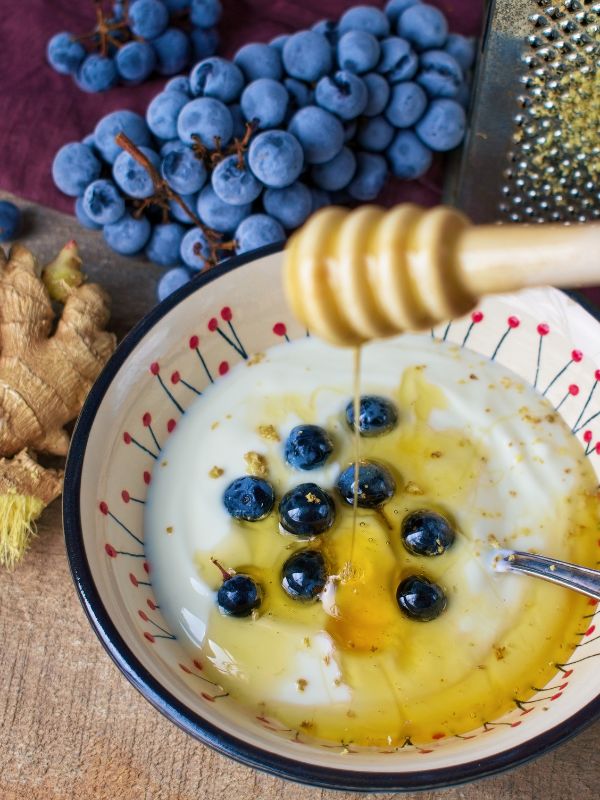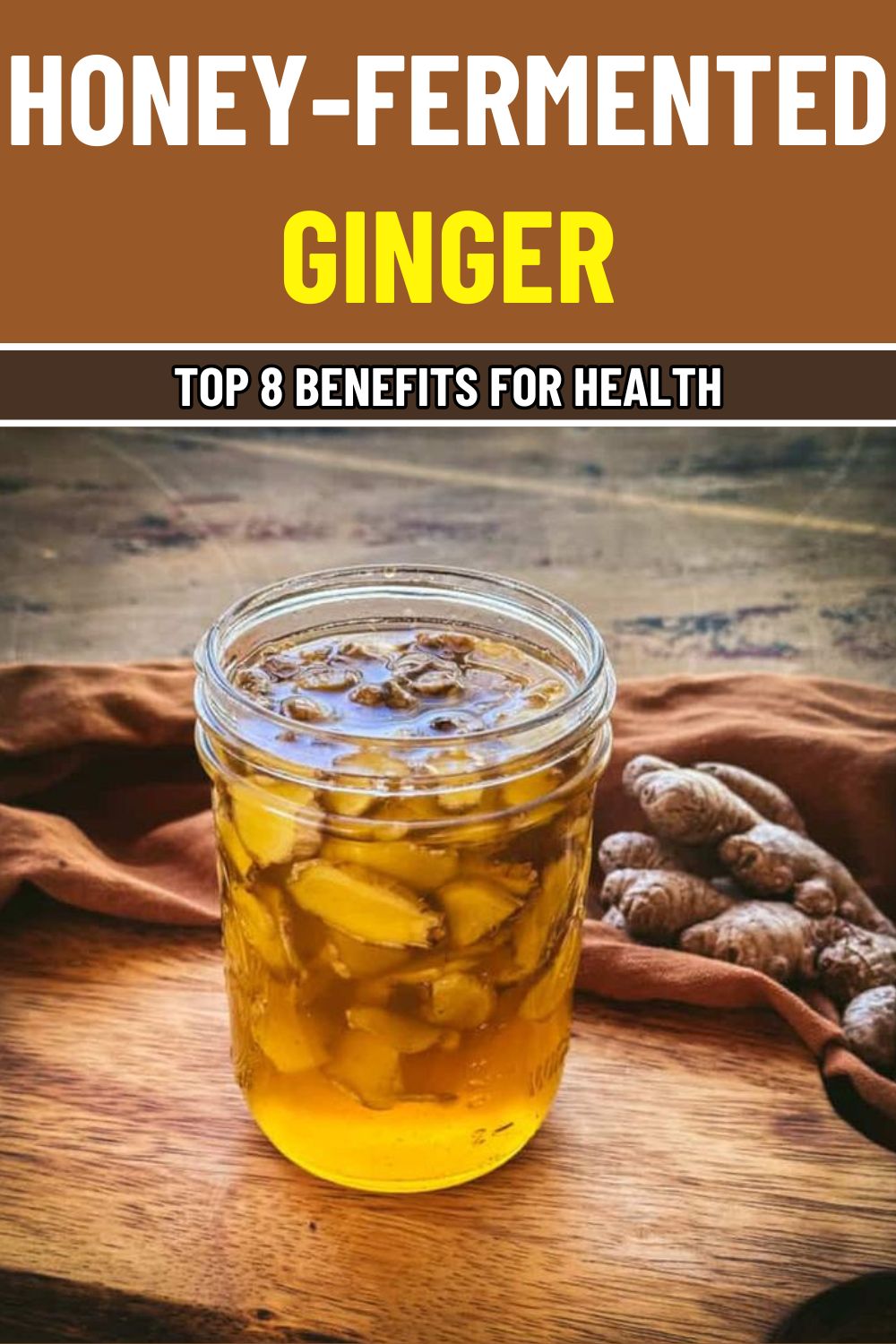Honey-fermented ginger is a centuries-old remedy that combines the natural sweetness of honey with the spicy, aromatic qualities of ginger.
This powerful combination not only enhances the flavor but also multiplies the health benefits of each ingredient.
Used as a daily tonic or a soothing remedy for specific ailments, honey-fermented ginger can boost immunity, support digestion, and promote overall well-being.
#1. Boosts Immunity
Ginger is rich in bioactive compounds like gingerol, which have potent anti-inflammatory and antioxidant properties. Honey acts as a natural antimicrobial agent, providing additional protection against pathogens.
According to research published in Frontiers in Microbiology, honey inhibits over 60 species of bacteria, fungi, and viruses, making this combination an effective immune booster.
Fermentation enhances these properties by introducing beneficial enzymes and probiotics, strengthening your body’s defenses.

#2. Aids Digestion
Ginger has long been used to ease nausea and promote digestion by stimulating gastric enzymes. Honey’s prebiotic qualities help feed beneficial gut bacteria, improving digestion further.
When fermented, the synergy between these ingredients produces a drink that combats bloating, indigestion, and sluggish bowel movements.
Studies from the International Journal of Food Science highlight how fermentation amplifies ginger’s digestive benefits, making it a staple for gut health.
#3. Reduces Inflammation
Both honey and ginger are well-known for their anti-inflammatory effects, which can alleviate symptoms of arthritis, muscle pain, and other chronic conditions.
According to a study in The Journal of Medicinal Food, ginger reduces markers of inflammation, while honey’s polyphenols protect cells from oxidative stress.
Fermented ginger releases additional anti-inflammatory compounds, providing a natural remedy for reducing inflammation.

#4. Supports Respiratory Health
Ginger’s warming properties help clear respiratory pathways, while honey soothes irritated throats and reduces coughing.
The fermentation process enhances ginger’s expectorant qualities, making it even more effective for colds, bronchitis, and sinus issues.
Research from the American Journal of Respiratory and Critical Care Medicine shows gingerol relaxes airway muscles, improving airflow and respiratory function.

#5. Regulates Blood Sugar Levels
Ginger helps increase insulin sensitivity and reduces fasting blood sugar, as supported by a study in Diabetes Care. Honey, when consumed in moderation, offers a natural sweetener alternative with a low glycemic index.
Fermentation creates additional enzymes that may assist in maintaining stable blood sugar levels, making this combination ideal for those managing diabetes or pre-diabetes under medical supervision.

#6. Promotes Heart Health
The antioxidants in honey and ginger protect against oxidative damage, a major contributor to heart disease.
Ginger improves circulation and reduces cholesterol levels, while honey lowers bad LDL cholesterol and increases good HDL cholesterol.
According to research in Phytotherapy Research, these effects are magnified through fermentation, which enhances the bioavailability of heart-healthy compounds.

#7. Enhances Energy Levels
Honey provides a quick energy boost thanks to its natural sugars, while ginger supports sustained metabolism. Together, they form a natural energy tonic that enhances physical and mental performance.
Studies in Nutrients show that honey-fermented ginger provides a steady release of energy without the crashes associated with artificial stimulants.

#8. Alleviates Menstrual Discomfort
Ginger has been shown to reduce the intensity of menstrual cramps by inhibiting prostaglandins that cause pain. Honey’s soothing properties complement ginger’s effects, providing relief from discomfort.
Research from BMC Complementary Medicine and Therapies confirms that this combination can effectively reduce pain and bloating during menstruation.

How to Make Honey-Fermented Ginger
Ingredients:
- Fresh ginger root (200 grams)
- Raw, unpasteurized honey
Instructions:
- Prepare the ginger: Wash, peel (optional), and slice the ginger.
- Assemble: Place ginger in a sterilized jar, then cover with honey.
- Ferment: Seal the jar loosely and leave it in a cool, dark place for 1-2 weeks.
- Use: Stir occasionally, and once ready, store in the refrigerator.

How to Use Honey-Fermented Ginger
- Daily tonic: Mix one teaspoon in warm water or tea and drink in the morning for a refreshing start to the day.
- Cold remedy: Take a spoonful directly or add hot water with lemon to soothe sore throats and coughs.
- Culinary use: Incorporate into marinades, salad dressings, or desserts for a unique flavor boost.
- Digestive aid: Consume after meals to reduce bloating and support digestion.

Cautions and Precautions
Overconsumption may lead to digestive discomfort or increased calorie intake.
People with diabetes or specific health conditions should consult their doctor before using honey-fermented ginger regularly.
Avoid if you are allergic to honey or ginger.
Pregnant women should seek medical advice before incorporating this remedy.
Disclaimer
This article is for informational purposes only and is not intended as medical advice.
Always consult a healthcare provider before making significant changes to your diet or using natural remedies, especially if you have underlying health conditions.

8 Incredible Health Benefits of Honey Fermented Ginger You Need to Know and How to Make It at Home
